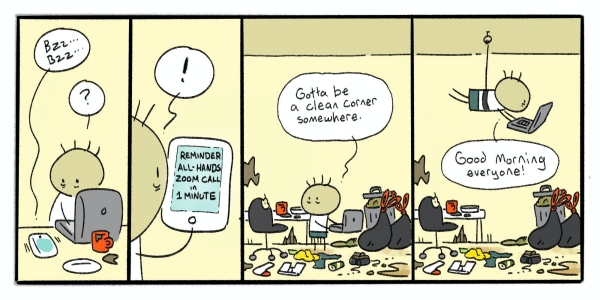Remember when you had to stay at a company for one year or else it’d look terrible on a resume? Now 80% of young workers feel it’s OK to quit before six months, and that level of turnover can seriously harm your business.
With economic turbulence in recent weeks, which saw layoffs hit tech, the Great Resignation could end. Still, nearly 50 million employees quit their jobs last year — the most in U.S. history — and 4.4 million did the same in February 2022. Aliza Knox, a former Google and Twitter executive and author of Don’t Quit Your Day Job: The 6 Mindshifts You Need to Rise and Thrive at Work, has a few ideas for convincing them to stay.
Why are employees so restless now?
Knox: There are more opportunities available. It’s a tight job market and people are taking the chance to move around. … There’s also quitagion — if half the people at work are quitting, “What’s the matter with me? I should do it, too!” There is definitely an effect of the pandemic and reprioritizing.
The other issue is that Gen Z is becoming a much larger proportion of the workforce — about 25% — and they are coming up with a different attitude.
So, how do companies keep their top talent from leaving?
Knox: Retention is the new black. They are going to have to be more flexible, whether that’s hours at work or commuting or workstyle. … There’s a bunch of McKinsey studies and research that suggest even more important than flexibility is that the company and the boss care about [employees] and are invested in them.
A small company has more opportunity there — you can do a lot personally from thoughtful and useful feedback to help them develop — but if you’re a large company, the CEO can trickle that [attitude] down.
Workloads are a big reason for quitting. How can managers avoid the temptation to reach out after hours?
Knox: If you have a system outage, that’s hard to [avoid]. … But you can compensate for it, and certainly the recognition and thank-yous and “can each of you take this much time off?”
To prevent burnout, you need to model some boundaries. [Be] a leader who says, “I need to exercise every day, so there is an hour and a half in my calendar to go to the gym,” or “I go home at 6 o’clock, don’t send emails” — whatever kind of modeling you can do … Don’t make people feel they have to choose between the job and leaving.
Don’t Quit Your Day Job by Aliza Knox is available now.



.jpg)


